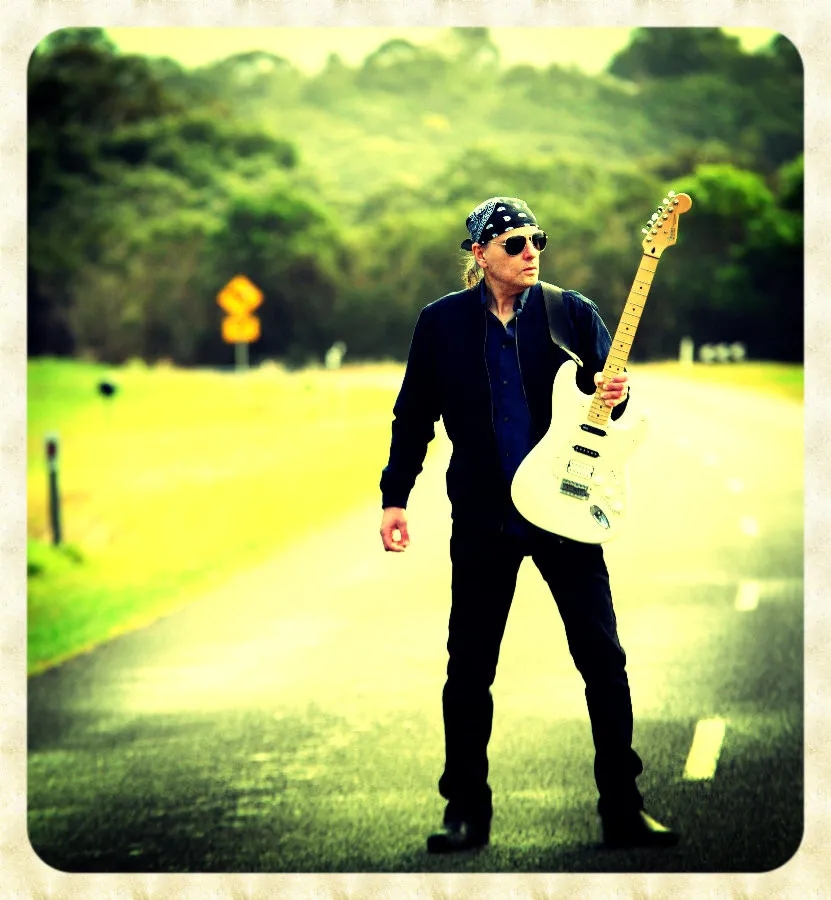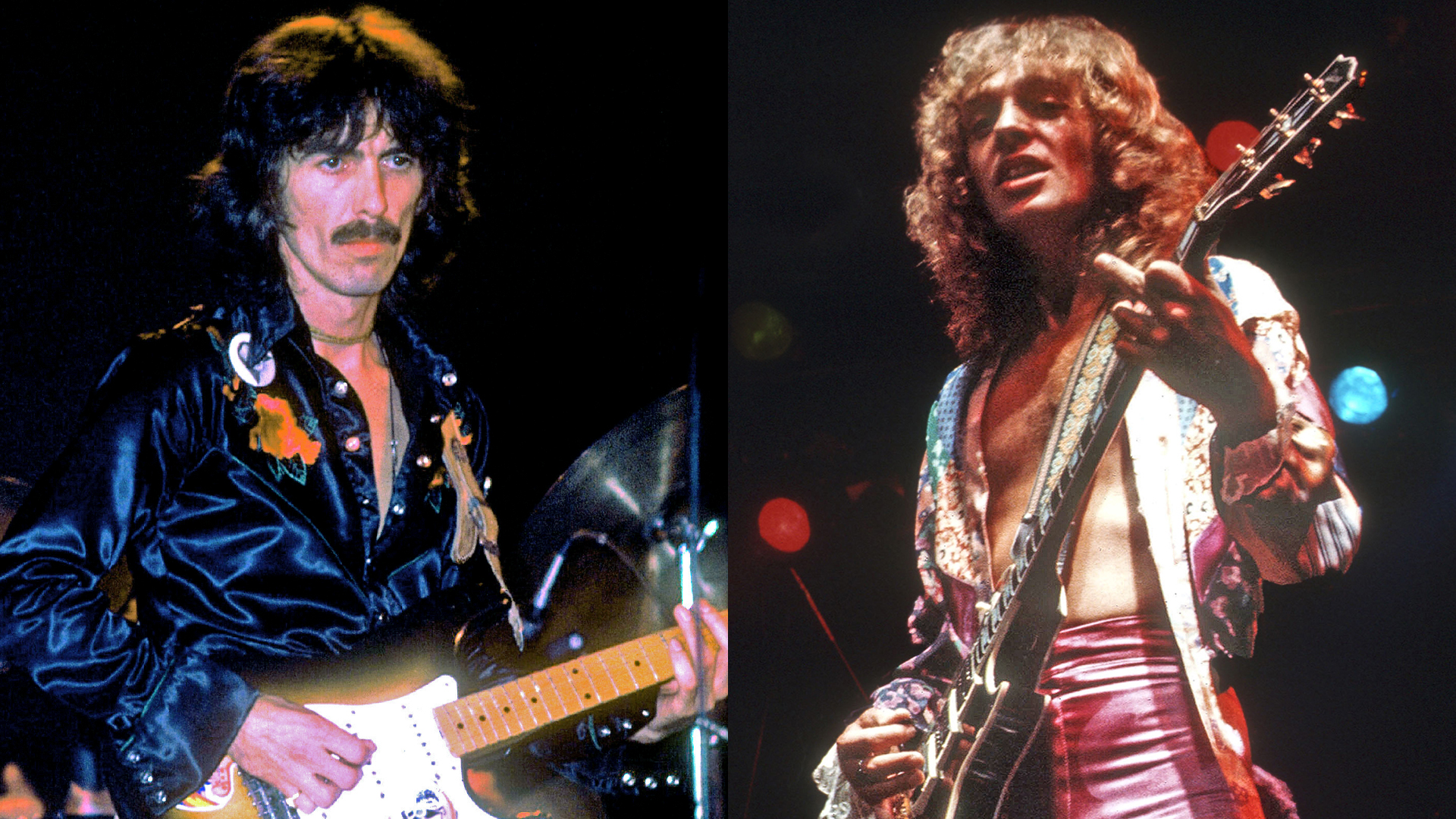“So they decide to get a guy to lay behind Bob’s amp.” Bob Dylan couldn’t understand one crucial thing about guitars and film making
‘Hearts of Fire’ was Dylan’s third foray into theatrical films and featured him playing a musician very much like himself
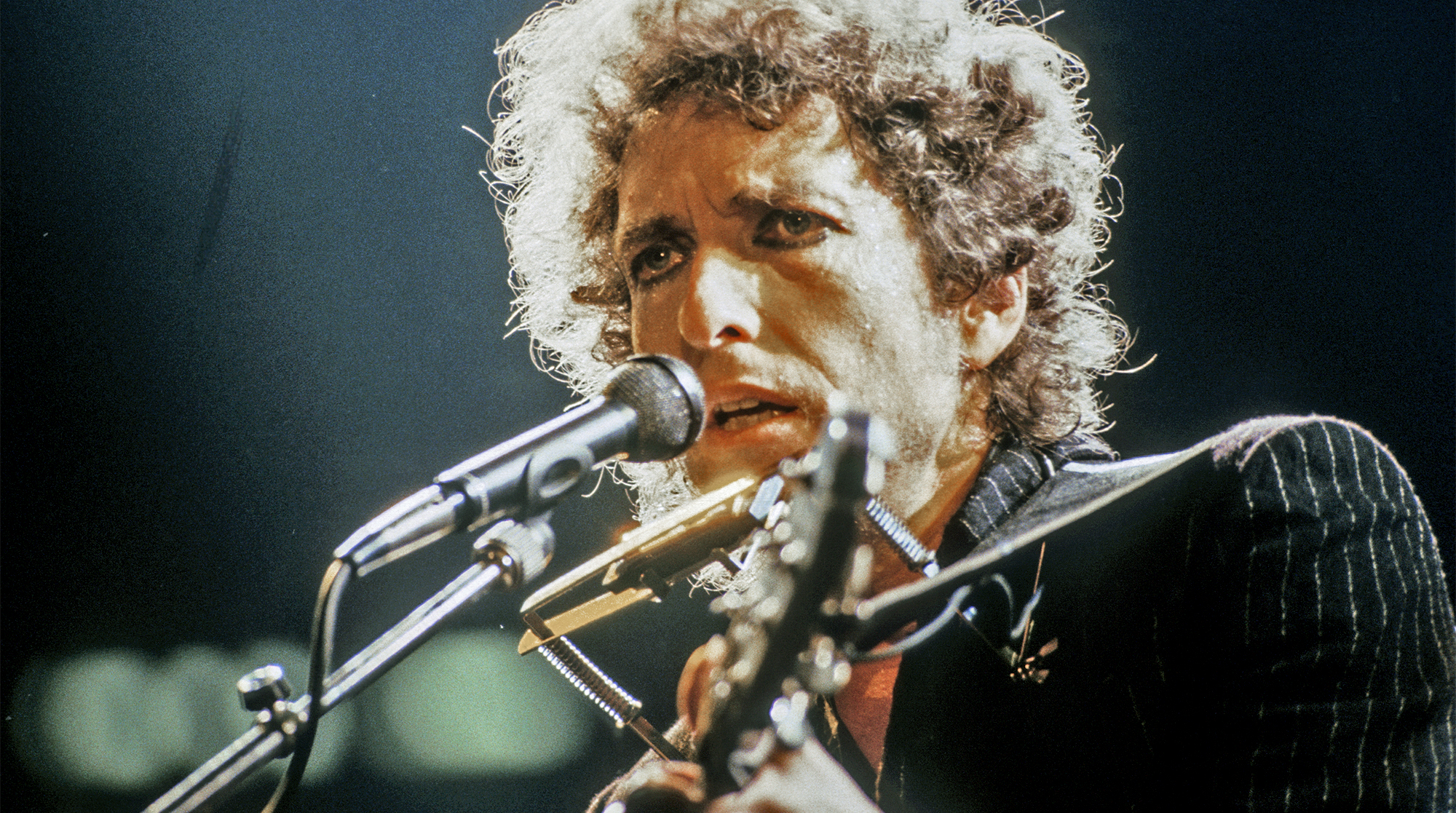
“The thing about Bob Dylan is you think, Oh, he’s lost his mind!
“But Bob’s very Bob,” Steve Bolton explains. “He just goes through these phases in his life.”
Bolton has first-hand experience with the folk-rock icon. After spending a year playing guitar for the British rock act Atomic Rooster in the early 1970s, Bolton was central to the group’s revival in 2016. But in-between those years, he bumped around the business, performing alongside Pete Townshend on the Who’s 1989 reunion tour and in Paul Young’s band, among various other assignments.
It was his talent as a musician that got him hired to appear alongside Dylan in the 1987 film Hearts of Fire, where Bolton performed as Spyder, the guitarist in his band.
“I received a phone call from the record company telling me they had got me a part in this Bob Dylan movie,” Bolton recalls. The guitarist was apparently treated well for his minor role in the feature. “On set, I even got my own trailer, with ‘Boltz’ written on it,” he notes.
The film was one of many left turns in Dylan’s long career. In the mid 1980s, after enduring a string of poorly received albums, he decided to venture into feature film acting for the third time, having previously starred in Sam Peckinpah’s 1972 western Pat Garrett and Billy the Kid and his own 1978 movie, Renaldo and Clara.
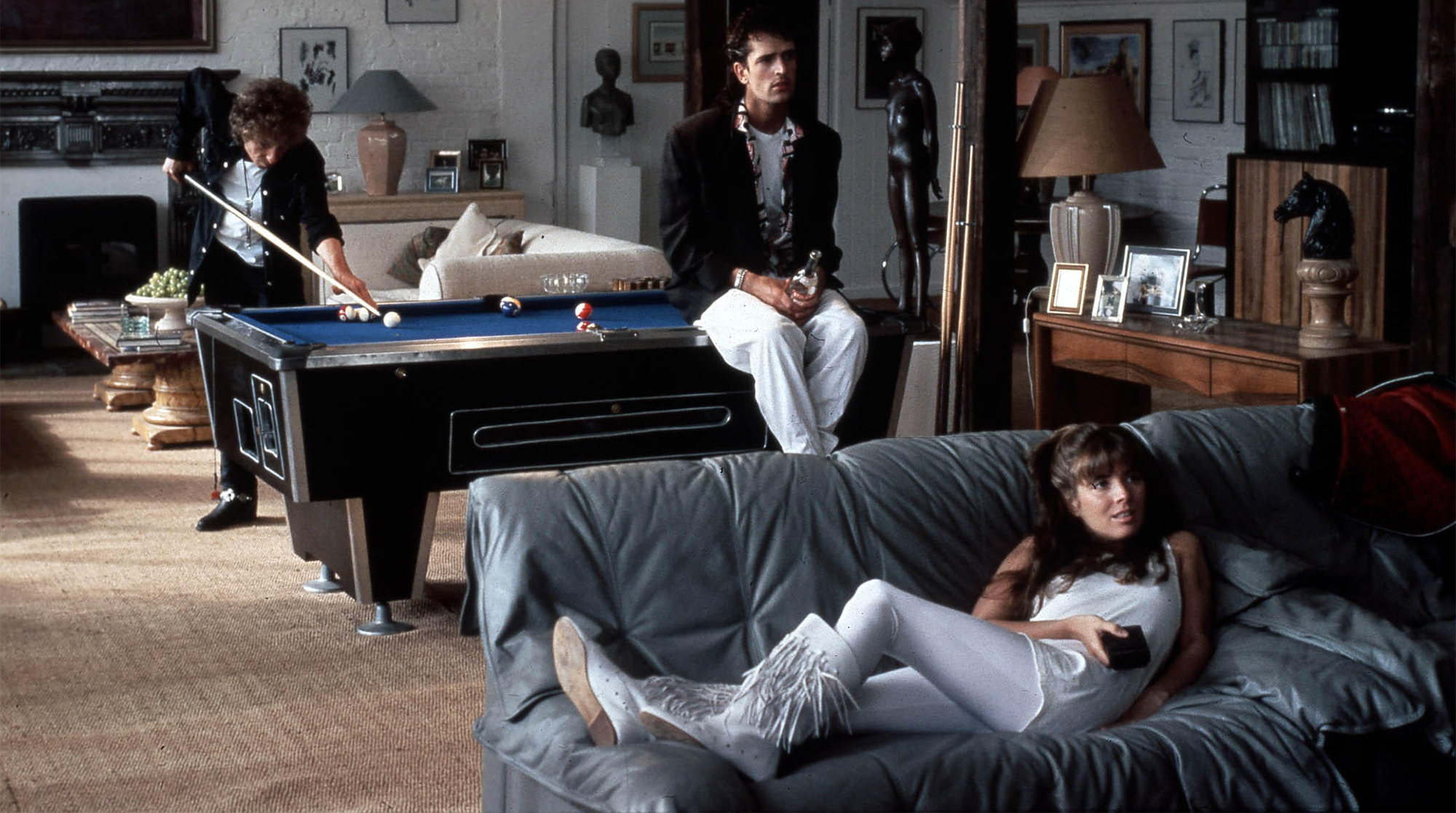
A 1980s take on the A Star Is Born franchise, Hearts of Fire was directed by Richard Marquand, famous for films like Return of the Jedi and the 1985 thriller The Jagged Edge. In addition to Dylan, it starred actor Rupert Everett and actress Fiona Flanagan, who had a hot minute (as simply Fiona) with her 1985 single “Talk to Me.” The film is also noteworthy for including brief appearances by folk legend Richie Havens (who, unusually for him, plays an electric guitar) and U.K. pub rocker Ian Dury.
All the latest guitar news, interviews, lessons, reviews, deals and more, direct to your inbox!
But as Bolton explains, the filming proved stressful on Marquand, not least because of Dylan’s idiosyncrasies and unfamiliarity with the process, which only added to the director’s problems.
Bolton met Dylan on set on the first day of shooting. He says the artist was in a temperamental mood and believes he didn’t like that, at six-foot-two, Bolton was noticeably taller than him.
“My first scene with him was in an old warehouse,” Bolton says. “We were rehearsing the scene and Bob came in with his Telecaster. He was going through a weird period at that time, where he wasn’t actually talking to anybody. He must have said something to the director about my height, as I was soon instructed to sit at the back on a flight case and drink a beer.”
He says Dylan seemed unable to follow basic instructions. During a scene that called for the musicians to mime onstage to a backing track, he insisted on playing his Telecaster through an amplifier, much to the displeasure of Marquand and the film crew.
“Bob’s scratching away on the guitar, and as the track came to an end, the drummer does this drum fill and the live mics come on, which is quickly followed by a bit of dialogue,” Bolton explains. “Bob’s line goes, ‘Hey, Nico, not too heavy on the drums, this ain’t World War III.’ But Richard couldn’t make Bob understand that he had to turn his guitar down in order for his line to be heard.
“An hour and a half later, Dylan still hasn’t got it right. They run through the track again and again, and each time when the mics come on, he still doesn’t turn down.
“So they decide to get a guy to lay behind Bob’s amp to turn the volume down. The director yells, ‘Cut!,’ and we get the scene.
“It was very bizarre.”
Although Bolton says his time with Dylan was brief, he finally got to share a moment alone with him while they were waiting around on set.
“We were filming this scene at the Electric Ballroom in Camden Town in London,” Bolton says. “And it’s the most incredibly boring experience, as you’re hanging around waiting, with no one telling you what’s going on until it actually is about to happen. They’ve brought in a rent-a-crowd — all these punks and weirdos — and we’re going to be miming to a really awful reggae track.”
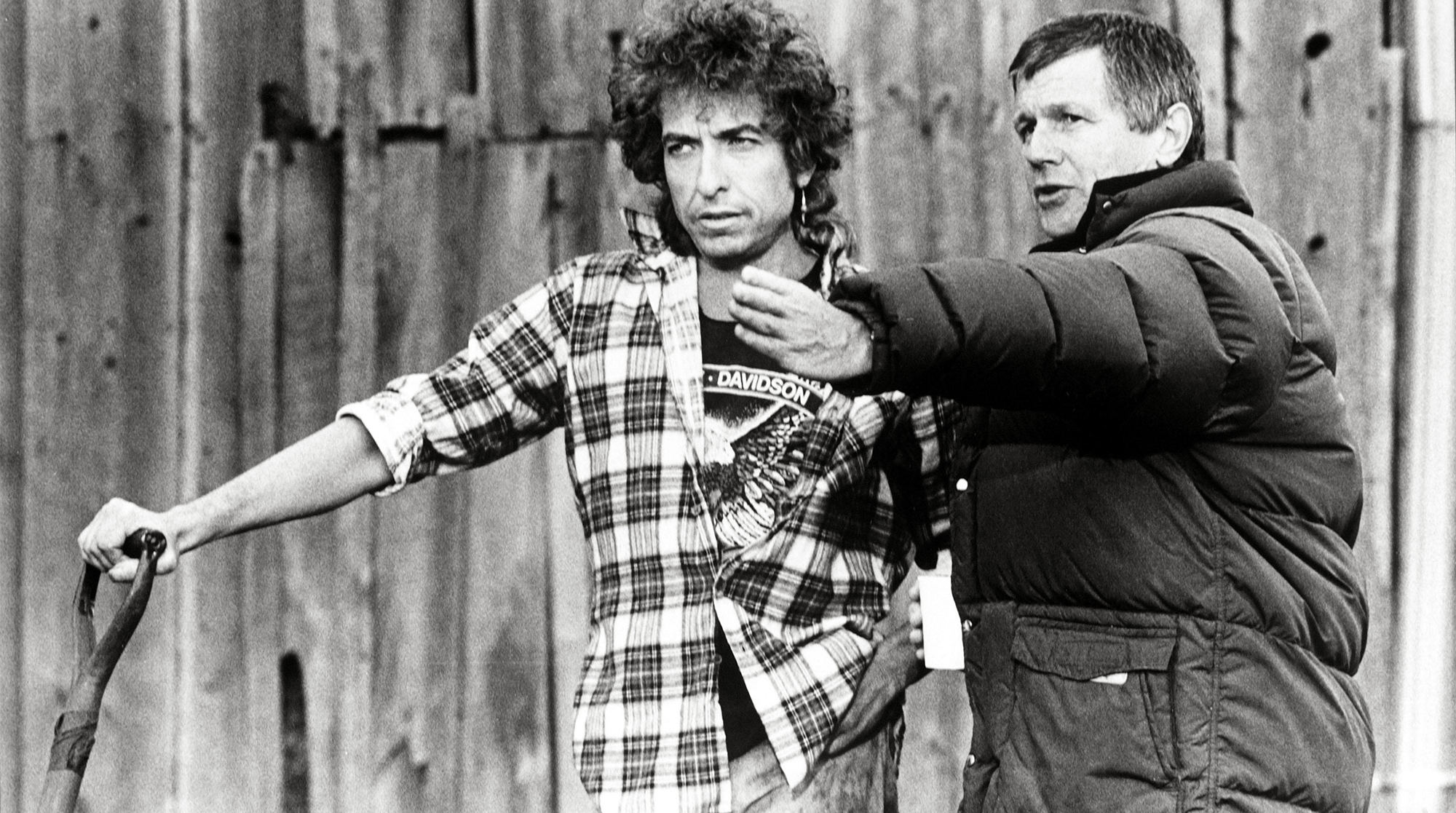
Typical of the film’s problems, the band that was supposed to appear in the scene failed to show up.
“A new hot London band called Zodiac Mindwarp and the Love Reaction were supposed to be in this film too,” Bolton explains, “but they ended up being locked up in the slammer after something happened outside a London club.”
Bolton, however, had a copy of the lyrics for the song the band was scheduled to mime to.
As he recalls, “It goes, ‘I’m the high priest of love / I’m shooting babies from the end of my dick / This ain’t science baby / It’s magic.’
“I turned to Bob: ‘They’re the kind of lyrics you should be writing,’ I told him.
“He looks at me, pauses and says, ‘You think so?’
“And I reply, ‘No. I’m just messing with you.’”
Released in the U.K. in October 1987, Hearts of Fire was a box office failure. The film received limited release in the U.S., where it fared no better. Dylan disowned it not long afterward.
As for the director, Marquand passed away from a stroke a month before it opened.
“The film ended up killing him,” Bolton claims.
Bolton, for his part, has no regrets about the experience. He says the one thing he took from his up-close-and-personal time with Dylan was his immense understanding of music.
“His knowledge of music is quite unbelievable,” he says. “He may be just a strummer, but he knows exactly what he is doing.”
Joe Matera is an Italian-Australian guitarist and music journalist who has spent the past two decades interviewing a who's who of the rock and metal world and written for Guitar World, Total Guitar, Rolling Stone, Goldmine, Sound On Sound, Classic Rock, Metal Hammer and many others. He is also a recording and performing musician and solo artist who has toured Europe on a regular basis and released several well-received albums including instrumental guitar rock outings through various European labels. Roxy Music's Phil Manzanera has called him "a great guitarist who knows what an electric guitar should sound like and plays a fluid pleasing style of rock." He's the author of two books, Backstage Pass; The Grit and the Glamour and Louder Than Words: Beyond the Backstage Pass.
